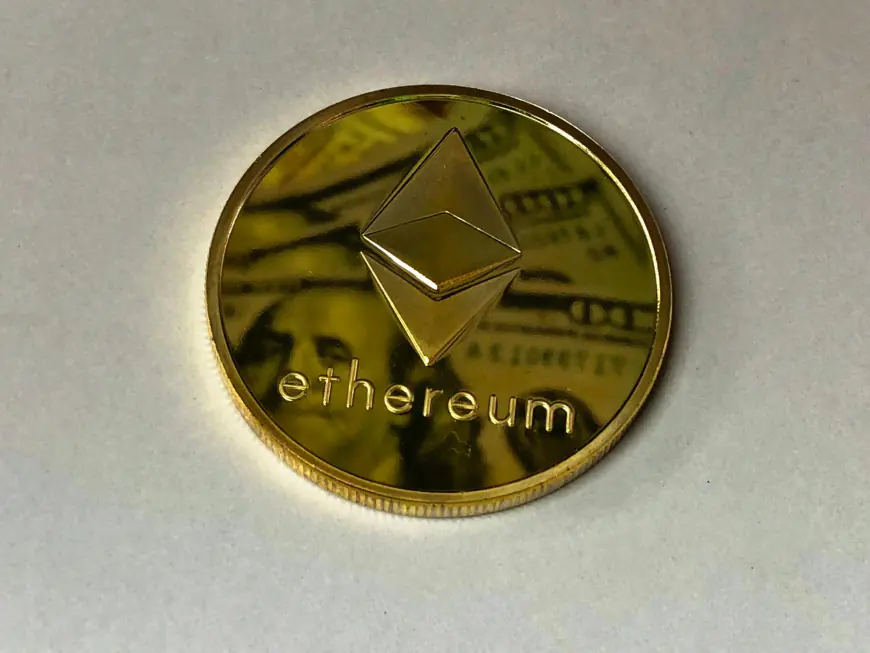Decentralized Finance (DeFi) on Ethereum: Opportunities and Risks
Decentralized finance (DeFi) is taking its place in finance with the help of Blockchain platforms like Ethereum. Because of this, anyone can opt for monetary transactions without the need for intermediaries. This is way different than what conventional financing rules demand, which is a centralised system, where people have to get financial services through banks [...]


Decentralized finance (DeFi) is taking its place in finance with the help of Blockchain platforms like Ethereum. Because of this, anyone can opt for monetary transactions without the need for intermediaries. This is way different than what conventional financing rules demand, which is a centralised system, where people have to get financial services through banks and brokerages. And it seems that Ethereum is leading the charge when it comes to giving DeFi the needed support to become more mainstream. Well, this is great news for the crypto lovers out there who can always check out the rate of Ethereum to US dollar before any financial transaction on the platform. But what makes this platform so favourable for DeFi to thrive so well? Let’s read on to understand why this is so, and much more.
Delving into the Rise of DeFi on Ethereum
Ethereum is now the most sought-after platform for building many DeFi applications and protocols. For example, It supports smart contracts for developers to build complex financial protocols. In case you were wondering what this means, these contracts theoretically can’t be changed by anyone once it’s already on the Ethereum Blockchain. In other words, safeguarding those involved in a financial transaction on the platform.
Another credible reason for Ethereum’s capability to power DeFi is its decentralized exchanges or DEXs. But what are these exactly? They are simply financial marketplaces where people can do their crypto-based financial transactions without help from any bank, payment processor, broker, or intermediary. With smart contracts, transactions on DEXs are secured. Plus, users can enjoy more transparency and control without worrying about high fees. Thanks to Ethereum-based DEXs, DeFi has become safer for everyone.
For example, Uniswap has become a favourite because people can trade their Ethereum-based tokens without needing a centralized exchange or order book. Because of this feature, demand and supply are practically non-existent here; instead, Uniswap uses an automated market maker (AMM) system that is powered by a mathematical formula based on its current version. There are also alternatives for users who aren’t fond of Uniswap, such as PancakeSwap, SushiSwap, Balancer, and Curve Finance.
The cryptocurrency Ethereum also hosts Compound, which is another DeFi protocol that allows people to lend or borrow cryptocurrencies while escaping third-party interference. Lenders can earn interest, and there are bonus COMP tokens for anyone who uses the protocol. Compound also uses an algorithmic interest rate system that depends on supply and demand.
With volatility issues always lurking, Ethereum’s DeFi ecosystem has Stablecoins, which are pegged to the value of a fiat currency (US dollar) and less risky. It’s worth noting that Tether’s (USDT) market capitalization is currently $ 114.45 billion. Looking at what Ethereum has to offer, it’s really not a surprise that DeFi is gaining more momentum on its network.
Exploring DeFi’s Benefits
DeFi has indeed permeated the financial sector, and its benefits can’t be easily overlooked. For example, its decentralized feature attracts financial players to try their hands on it. Because DeFi protocols operate without a centralized authority, there is more transparency, and bad players may have a hard time manipulating contracts or perpetuating fraud. And people only need an internet connection to do their business on the platforms from any part of the world.
Without a centralized system, people can control their finances however they want. It even gets better with Ethereum’s cryptography and data protection that remains steadfast in providing security and data safety. Since Ethereum loves financial experimentation and innovation, people with the right skills can develop and launch new DeFi protocols.
Evaluating the Challenges of DeFi
DeFi sure has made financial transactions easier, but it isn’t infallible. For starters, users will find that scalability is a challenge for many Blockchain networks. Ethereum, for instance, can only stand a few transactions per second, and users are less likely to appreciate the congestion issues and slower confirmation times. The high transaction fees aren’t also helping its case.
Although smart contracts should be impossible to mess with, it’s quite concerning that they aren’t completely fraud-proof in practice. It may be more difficult for hackers to exploit these contracts, but the possibility hasn’t been eliminated. The 2016 DAO hack, where millions of dollars were lost, is one glaring example of what can happen when hackers get their hands on smart contracts. This is also a lack of defined regulatory frameworks and complex protocols which makes usage intimidating for inexperienced people.
The Bottomline
DeFi is becoming mainstream in the finance industry, which is not surprising, as it has a lot of potential. Ethereum has proven itself valuable in handling various DeFi protocols and applications. It is decentralized, accessible, innovative and efficient. But DeFi still faces setbacks with regulations, scalability, and security. But as blockchains and DeFi evolve, these issues may get the needed corrections in the near future.
What's Your Reaction?







































































































